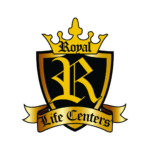When one hears the term ‘alcoholic,’ it is easy to picture someone who is lacking in morals and willpower. However, this is a highly stigmatized idea of alcoholism and one that does not properly reflect the harmful nature of this addiction. If you are wondering why alcohol is addictive, the answer lies within the brain.
Alcohol found in beer, wine, and other distilled drinks triggers the release of dopamine which stimulates the brain and encourages people to drink more. As a result, drinking large amounts of alcohol can lead to addiction as well as other serious health problems, including liver damage and cancer.
Alcohol addiction is a disease and one that can affect anybody, regardless of their morals or character. This is because alcohol is a drug. The more it is consumed, the stronger a grip it gains on the person’s brain. To truly understand how this substance leads to addiction, it is important to learn about what alcohol is and why its use has become so widely accepted.
What Is Alcohol?
Alcohol is a type of organic compound that contains a hydroxyl group (-OH) bonded to a carbon atom. There are three types of alcohol that we use regularly. These are methanol, isopropanol, and ethanol. The only type of alcohol that can be safely consumed by humans is ethanol, while the other two are typically used for cleaning and manufacturing.
The most common type of alcohol found in alcoholic beverages is ethanol, also known as ethyl alcohol. Ethanol is produced by fermenting sugars and yeast and is the ingredient in beer, wine, and liquor that makes you drunk.
This substance has a long history throughout the world, with the first traces of alcohol dating back as early as 7000–6600 BCE as a drink made from fermented rice, honey, and various fruits. Today, there are many varieties of alcohol to choose from, including wines, liquors, ales, and spirits.
When it comes to alcohol’s influence in the US, the early 1900s faced a particular crisis about this substance. Enough so that the Prohibition of 1920 to 1933 completely banned the marketing and purchase of alcoholic beverages.
Since its repeal, this substance has continued to raise concerns throughout the country. According to the 2021 National Survey on Drug Use and Health (NSDUH), an estimated 29.5 million individuals over the age of 12 suffered from an alcohol use disorder within the previous year.
Is Alcohol Addictive?
A question many people find themselves asking is if alcohol is addictive. And if so, is alcohol a drug? The technical answer to both of these questions is, technically, yes. As a mind-altering and impairing substance, alcohol is both addictive and a drug. So, what makes alcohol addictive?
Alcohol is addictive because it alters the brain’s reward system. When alcohol is consumed, it releases dopamine, a neurotransmitter that is associated with pleasure and reward. This release of dopamine reinforces the behavior of drinking alcohol, making it more likely that you will drink again in the future.
Over time, the brain adapts to the presence of alcohol and becomes less sensitive to dopamine. This means that you will need to drink more alcohol to achieve the same level of pleasure. This can lead to alcohol dependence, a condition in which you need alcohol to function normally.
In addition to the effects on the brain, alcohol abuse can also have several other physical and psychological effects that can contribute to addiction. For example, alcohol consumption lowers a person’s inhibitions which can temporarily reduce anxiety and stress. As a result, some people begin drinking alcohol to “calm their nerves” or “unwind,” and find it difficult to cope with their fears without drinking.
What Are the Signs Someone is Addicted to Alcohol?
Alcohol addiction is a chronic disease that can have serious health, social, and economic consequences. It is characterized by an impaired ability to control one’s drinking, despite negative consequences.
There are many signs and symptoms of alcohol addiction, whether these be physical, emotional, or behavioral. Some of the most common physical signs include:
- Red eyes, flushed face, and warm skin
- Slurred speech
- Difficulty walking or standing
- Uncoordinated movements
- Nausea and vomiting
- Confusion and memory loss
- Tremors
- Hallucinations
When it comes to the emotional and behavioral signs of alcohol abuse, these will most commonly include:
- Needing to drink more alcohol to achieve the desired effect.
- Drinking in secret or lying about how much you drink.
- Making excuses for your drinking.
- Continuing to drink despite this causing or worsening other health conditions.
- Giving up activities you used to enjoy to drink.
- Developing problems at work, school, or in relationships due to drinking.
- Running into financial and legal problems due to alcohol abuse.
If you are concerned that you or someone you know may be struggling with alcohol addiction, there are many resources available to help. It is important to remember that you are not alone. Alcohol addiction is a treatable disease, and there is help available.
How Is Alcohol Abuse Treated?
Alcohol abuse is a serious problem that can have a devastating impact on you, your family, and your community. Fortunately, there are effective treatments available that can help you or your loved one recover from alcohol abuse and live a sober life.
The best treatment for alcohol abuse will vary depending on the individual’s specific needs and circumstances. Typically, alcohol treatment will likely include some combination of the following:
- Detoxification
- Comfort medications
- Medication-assisted treatment
- Behavioral therapies
- Holistic services
- Support groups
Detoxification
When a person stops drinking alcohol, they may experience alcohol withdrawal symptoms such as insomnia, anxiety, irregular heartbeat, and even seizures. These symptoms can become worse with time and can be dangerous if not managed properly. For this reason, it is important to seek treatment for an alcohol use disorder due to the risk of potentially life-threatening side effects.
During an alcohol detox in a hospital or inpatient treatment center, people safely undergo the process of removing alcohol from the body and managing any symptoms of withdrawal.
Comfort Medications
Comfort medications can provide relief for those struggling with the effects of alcohol such as insomnia, anxiety, and agitation. These non-addictive medications can also help to reduce alcohol cravings. Most importantly, rehab medications can be necessary to prevent potential complications associated with alcohol withdrawal such as seizures or delirium tremens.
Medication-assisted Treatment
Several medications can help you reduce your drinking or prevent relapse, including Acamprosate, Disulfiram, Naltrexone, and Topiramate. Offered in a medication-assisted treatment (MAT) program, these are not a cure for alcohol abuse, but they can be an important part of recovery. Throughout medication-assisted detox, our team will monitor your progress while providing medications to treat alcohol withdrawal and the associated cravings or urges.
Behavioral Therapies
In general, behavioral therapies help people change their thoughts and behaviors related to alcohol. As a versatile approach, behavioral therapy techniques benefit individual and group sessions. It can also help those struggling with co-occurring mental health disorders manage their symptoms and teach them skills for living a healthy lifestyle after treatment.
Holistic Services
During the recovery process, your emotional well-being will be just as important as your physical health. Holistic therapies and treatments can help you stay emotionally balanced while on your road to recovery.
Holistic services are designed to provide you with a sense of peace and tranquility, while also helping to reduce stress, improve emotional regulation, and increase your overall mental health. At Royal Life Centers, we offer holistic therapies such as yoga, meditation, art therapy, music therapy, and mindfulness classes. These services can help you gain the skills necessary for sustained recovery.
Support Groups
Support groups can provide people with a sense of community and support as they recover from alcohol abuse. There are many different types of support groups available, including Alcoholics Anonymous (AA), Narcotics Anonymous (NA), and SMART Recovery. Each of these groups offers individualized programs and guidance to help people work through the recovery process. Learning from others in similar situations can be incredibly helpful when it comes to quitting alcohol. Attending support group meetings can also help provide accountability and structure for staying sober.
Having a safe space to talk about shared experiences can be incredibly helpful in the recovery process. For this reason, our alcohol rehab programs provide specialized support such as gender-specific groups, Veteran groups, Wellbriety-certified tribal healing groups, and support for family members.
Alcohol Abuse Treatment at Royal Life Centers
When recovering from alcohol addiction, it is important to do so in the safety and comfort of a professional treatment center. At Royal Life Centers, we care about our clients and make sure their success is our top priority.
We offer an extensive variety of alcohol rehab treatment programs at our facility, starting with detox and inpatient rehab and continuing into PHP, IOP, and outpatient. No matter what your recovery needs are, we have the treatment options to meet them.
You deserve to live a happier, healthier, and alcohol-free life, and Royal Life Centers wants to give you that opportunity. If you or a loved one is struggling with alcohol abuse, please reach out to us today. Our admissions team is available 24/7 at (877)-RECOVERY to answer your questions about how our alcohol addiction treatment facility can help you achieve sobriety.







